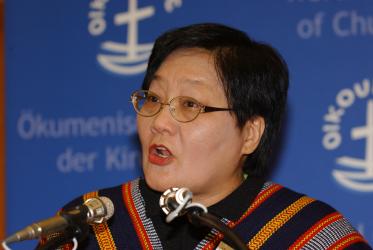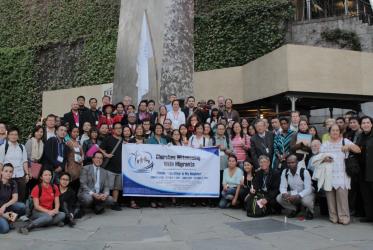Displaying 41 - 59 of 59
Consultation considers right to food in context of climate change
15 December 2015
Land rights focus of panel discussion
17 November 2015
Réunions-débats consacrées aux droits fonciers
17 November 2015
Climate pilgrimage toward COP21 pauses in Geneva
05 November 2015
A humble man firmly rooted in faith
20 August 2015
Church in Philippines launches book on HIV and AIDS
19 February 2014
Senturias named to human rights board in the Philippines
18 February 2014
Churches advocate upholding human dignity of migrants
14 October 2013
A church that listens fosters healthy communities
15 March 2013
Churches engage in development dialogue on Africa
06 March 2013










